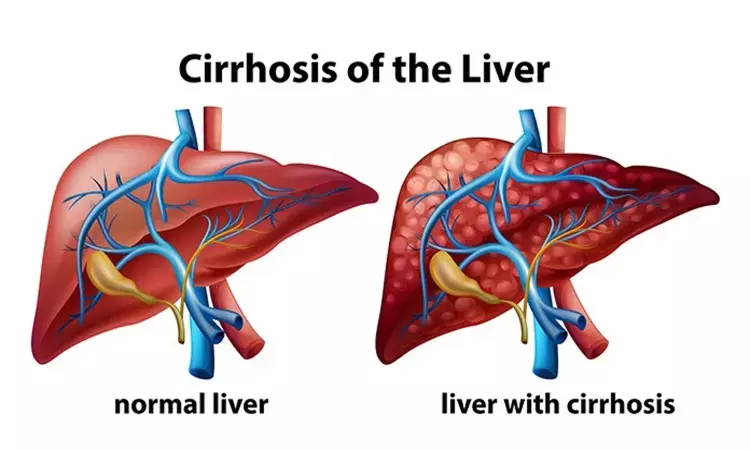- Home
- Medical news & Guidelines
- Anesthesiology
- Cardiology and CTVS
- Critical Care
- Dentistry
- Dermatology
- Diabetes and Endocrinology
- ENT
- Gastroenterology
- Medicine
- Nephrology
- Neurology
- Obstretics-Gynaecology
- Oncology
- Ophthalmology
- Orthopaedics
- Pediatrics-Neonatology
- Psychiatry
- Pulmonology
- Radiology
- Surgery
- Urology
- Laboratory Medicine
- Diet
- Nursing
- Paramedical
- Physiotherapy
- Health news
- Fact Check
- Bone Health Fact Check
- Brain Health Fact Check
- Cancer Related Fact Check
- Child Care Fact Check
- Dental and oral health fact check
- Diabetes and metabolic health fact check
- Diet and Nutrition Fact Check
- Eye and ENT Care Fact Check
- Fitness fact check
- Gut health fact check
- Heart health fact check
- Kidney health fact check
- Medical education fact check
- Men's health fact check
- Respiratory fact check
- Skin and hair care fact check
- Vaccine and Immunization fact check
- Women's health fact check
- AYUSH
- State News
- Andaman and Nicobar Islands
- Andhra Pradesh
- Arunachal Pradesh
- Assam
- Bihar
- Chandigarh
- Chattisgarh
- Dadra and Nagar Haveli
- Daman and Diu
- Delhi
- Goa
- Gujarat
- Haryana
- Himachal Pradesh
- Jammu & Kashmir
- Jharkhand
- Karnataka
- Kerala
- Ladakh
- Lakshadweep
- Madhya Pradesh
- Maharashtra
- Manipur
- Meghalaya
- Mizoram
- Nagaland
- Odisha
- Puducherry
- Punjab
- Rajasthan
- Sikkim
- Tamil Nadu
- Telangana
- Tripura
- Uttar Pradesh
- Uttrakhand
- West Bengal
- Medical Education
- Industry
Strength training benefits patients with liver cirrhosis

Three hours of weekly strength training combined with protein supplements leads to both bigger and stronger muscles in patients with cirrhosis. This is shown by a new study from Aarhus University and Aarhus University Hospital.
Cirrhosis is often complicated by reduced muscle mass and strength, which limits the ability to perform daily activities and affects quality of life. Resistance training can increase muscle strength and mass in elderly and chronically ill patients. The researchers performed a randomized controlled trial to investigate whether resistance training increases muscle strength and size in patients with compensated cirrhosis.
Patients with cirrhosis should be prescribed strength training. This is the opinion of the researchers behind a new study which shows that the loss of both muscle strength and size does not have to be permanent in patients with cirrhosis.
"Our training project has demonstrated that strength training and protein supplements can break the vicious circle and rebuild muscles so that their muscles become stronger and bigger," says Luise Aamann from Aarhus University and the Aarhus University Hospital. She is a member of the research group behind the study.
Everyday life became easier
A total of 39 people with cirrhosis took part in the trial which lasted twelve weeks. Half of the participants spent one hour three times a week doing strength training. Both the training group and the control group received dietary advice from a dietitian and also protein supplements throughout the twelve weeks. All physical activity and protein intake was recorded daily in a diary.
"The group who trained increased both muscle strength and size during the twelve weeks of strength training compared to the control group. Furthermore, we found that both functional capacity and quality of life were improved among the members of the training group, and all things being equal, this will make it easier to take care of everyday chores," says Luise Aamann.
The results have just been published in the scientific journal Clinical Gastroenterology and Hepatology.
It is well-known from other studies that strength training benefits the muscles with examples of this including emphysema and cardiovascular diseases. However, that strength training also can be effective for patients with cirrhosis, a disease which is particularly aggressive towards the body's muscles, is new.
"Frail and atrophied arms and legs due to malnutrition and weakened muscles are a characteristic of cirrhosis and are seen in seventy-five cent of hospitalised patients. Atrophying increases the risk of life-threatening conditions such as infections, kidney failure and impact on the brain," says the researcher.
And in everyday life, the weakening of the muscles is severely disabling for the individual and hampers ordinary activities such as shopping, climbing stairs and vacuuming.
"The inactivity creates a negative spiral with further loss of function and finally also social isolation," says Luise Aamann. The next phase of the study will look into whether the twelve weeks of training also affects mortality.
Background for the results:
The study is a randomised clinical trial with a training group and a control group carried out as an interdisciplinary project between the Department of Hepatology and Gastroenterology, the Department of Neurology, and the Department of Radiology at Aarhus University Hospital, together with Sport Science at the Department of Public Health at Aarhus University
Hina Zahid Joined Medical Dialogue in 2017 with a passion to work as a Reporter. She coordinates with various national and international journals and association and covers all the stories related to Medical guidelines, Medical Journals, rare medical surgeries as well as all the updates in the medical field. Email: editorial@medicaldialogues.in. Contact no. 011-43720751
Dr Kamal Kant Kohli-MBBS, DTCD- a chest specialist with more than 30 years of practice and a flair for writing clinical articles, Dr Kamal Kant Kohli joined Medical Dialogues as a Chief Editor of Medical News. Besides writing articles, as an editor, he proofreads and verifies all the medical content published on Medical Dialogues including those coming from journals, studies,medical conferences,guidelines etc. Email: drkohli@medicaldialogues.in. Contact no. 011-43720751


